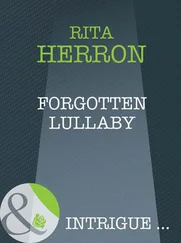Rita Monaldi - Imprimatur
Здесь есть возможность читать онлайн «Rita Monaldi - Imprimatur» весь текст электронной книги совершенно бесплатно (целиком полную версию без сокращений). В некоторых случаях можно слушать аудио, скачать через торрент в формате fb2 и присутствует краткое содержание. Жанр: Исторический детектив, на английском языке. Описание произведения, (предисловие) а так же отзывы посетителей доступны на портале библиотеки ЛибКат.
- Название:Imprimatur
- Автор:
- Жанр:
- Год:неизвестен
- ISBN:нет данных
- Рейтинг книги:5 / 5. Голосов: 1
-
Избранное:Добавить в избранное
- Отзывы:
-
Ваша оценка:
- 100
- 1
- 2
- 3
- 4
- 5
Imprimatur: краткое содержание, описание и аннотация
Предлагаем к чтению аннотацию, описание, краткое содержание или предисловие (зависит от того, что написал сам автор книги «Imprimatur»). Если вы не нашли необходимую информацию о книге — напишите в комментариях, мы постараемся отыскать её.
Imprimatur — читать онлайн бесплатно полную книгу (весь текст) целиком
Ниже представлен текст книги, разбитый по страницам. Система сохранения места последней прочитанной страницы, позволяет с удобством читать онлайн бесплатно книгу «Imprimatur», без необходимости каждый раз заново искать на чём Вы остановились. Поставьте закладку, и сможете в любой момент перейти на страницу, на которой закончили чтение.
Интервал:
Закладка:
Locanda del Donzello at the end of July and who had now died, allegedly of the infection. He was certainly a great nobleman, added Pellegrino, in very delicate health, and he had come to the inn accompanied by Devize and Dulcibeni. Signor di Mourai was in fact almost completely blind and needed to be accompanied. About the old gentleman, almost nothing was known: the moment he arrived, he announced that he was very tired and every day he had his meal brought to him in his chamber, issuing forth only rarely for a short walk in the environs of the hostelry. The men-at-arms took rapid note of my master's statements.
"It is simply not possible, gentlemen, that he should have died of the plague! He had excellent manners and was very well dressed; it must have been old age-that is all."
Master Pellegrino's tongue had loosened and he began to address the militia in that soft tone of his which, although he employed it but rarely, sometimes proved highly effective for achieving his ends. Despite his noble features and tall, slim figure-his gentle hands, the easy and slightly stooped carriage of his fifty years, his face framed by flowing white tresses caught up with a ribbon, his vague and languid chestnut eyes-my master was, alas, prey to a bilious and choleric temper and ornamented his discourse with a great wealth of oaths and profanities. Only imminent danger restrained him from giving free rein to his nature on this occasion.
But no one was listening to him any longer. The young Devize and Pompeo Dulcibeni were called up once again, and stepped forward at once. Our lodgers' eyes shone as the French musician, whose guitar had enchanted them only moments earlier, advanced.
The men of the Bargello were now eager to be gone and, without even giving Devize and Dulcibeni the time to reach the wall, pushed them to one side, while the officer called, "Signor Eduardus Bedfordi, Englishman, and the Lady… and Cloridia."
The hasty correction and the vague smile with which the latter name was proffered left no doubt as to the ancient profession exercised by the one and only feminine lodger at the Donzello. About her, I really knew very little, for my master had not housed her among the other guests, but in the little tower, where she enjoyed a separate entrance. In the brief month of her stay, I had only to bring her provisions and wine, and to deliver (in truth, with singular frequency) notes in sealed envelopes which almost never showed the writer's name. Cloridia was quite young; she must have been about my own age. I had sometimes seen her come down into the chambers on the ground floor, and converse-quite charmingly, I must say-with one or other of our lodgers. Judging by her interviews with Master Pellegrino, she seemed intent on taking our hostelry as her fixed dwelling.
Signor di Bedfordi could not pass unobserved: with fiery red hair and a mantle of little golden freckles over his nose and on his cheeks, and squinting sky-blue eyes such as I had never seen before, he came from the distant British Isles. From what I had heard, this was not his first sojourn at the Donzello: like the glass-blower Brenozzi and Priaso the poet, he had already stayed there in the days of the previous hostess, my master's late cousin.
Mine was the last name to be called.
"He is twenty years old and has not been long in my employ," explained Pellegrino. "At the moment, he is my only apprentice, for at this time of year we have few guests. I know nothing about him, I took him in because he was alone in the world," said my master hurriedly, giving the impression that he wished to distance himself from any responsibility for the infection.
"Just show him to us, we must close," interrupted the men-at- arms impatiently, unable to identify me.
Pellegrino caught me by the arm, almost lifting me off the ground.
"Young man, you're nothing but a sparrow!" sneered the guard, while his companions guffawed.
From the windows all around, meanwhile, a few heads poked out timidly. The people of the quarter had found out what had happened, but only the most curious tried to draw near. Most kept their distances, already fearing the effects of the contagion.
The men-at-arms had concluded their mission. The inn had four entrances. Two on the Via dell'Orso: the great main door and the broad entrance next to it-kept open on summer evenings-which gave onto the first of the two dining chambers.
Then there was the side door which led from the alley directly to the kitchen, and, finally, the little door which led from the entrance hall to the courtyard. All were thoroughly sealed with stout beech planks made fast with nails a half-span long. The same was done to the door that led from Cloridia's little tower to the roof. The windows on the ground floor and the first floor, and those vents that opened onto the pavement from the top of the cellars had already been fitted with grates, and any attempt to escape from the second floor or from under the eaves would have involved the risk of falling or being seen and captured.
The leader of the Bargello's men, a fat individual with a half- severed ear, gave us our instructions. We were to lower the corpse of poor Signor di Mourai from one of the windows of his chamber after sunrise, when the dead-cart from the Societas Orationis et Mortis would pass by to collect it, and they would see to the burial. We were to be under the surveillance of a Watchman by Day from six of the clock in the morning until ten at night, and a Watchman by Night for the remainder of the time. We would not be able to leave until the safety of the place was duly established and certified, and in any case not before twenty days had expired. During that time, we must periodically answer a roll-call from one of the windows giving on to the Via dell'Orso. We were left a few large goatskins of water, pressed snow, a few round loaves, cheeses, lard, olives, some herbs and a basket of yellow apples. We were to receive a sum with which to pay for our victuals, water and snow. The inn's horses would remain where they were, in the hostler's stables next door.
Anyone who left or who so much as attempted to flee would receive forty lashes with the knotted cord and be delivered to the Magistrate for punishment. At the entrance, they nailed the infamous placard with the inscription sanita — Health. We were then admonished to comply with whatever instructions might be given us thereafter, including the provisions adopted in times of infection, or plague; and whoever did not obey would be severely punished. From inside the hostelry, we heard dumbstruck that we were condemned to sequestration.
"We are dead, all dead," quoth one of the guests in colourless tones.
We were gathered in the long, narrow hallway of the hostelry, which had become dismal and dark since the barring of the door. We looked about ourselves, bewildered. None could make the decision to move to the adjoining rooms, where supper lay, already cold. My master, slumped on the great bench in the entrance, inveighed, holding his head in his hands. He uttered abuse and curses unfit to be repeated and threatened harm to anyone so bold as to venture near him. Suddenly, he began to rain down tremendous blows against the poor bench with his bare hands, causing the register of guests to jump up into the air. After that, he lifted the table and hurled it against the wall. We had to intervene and hold him back, clutching his arms and chest. Pellegrino tried to break free but lost his balance, dragging a pair of the guests to the ground with him, and dashing them one against the other with a great din. I myself managed to dodge out of the way a moment before the human heap threatened to bury me. My master was nimbler than his would-be controllers and almost at once was back on his feet, shouting and again unleashing his wrath on the bench with his fists.
Читать дальшеИнтервал:
Закладка:
Похожие книги на «Imprimatur»
Представляем Вашему вниманию похожие книги на «Imprimatur» списком для выбора. Мы отобрали схожую по названию и смыслу литературу в надежде предоставить читателям больше вариантов отыскать новые, интересные, ещё непрочитанные произведения.
Обсуждение, отзывы о книге «Imprimatur» и просто собственные мнения читателей. Оставьте ваши комментарии, напишите, что Вы думаете о произведении, его смысле или главных героях. Укажите что конкретно понравилось, а что нет, и почему Вы так считаете.












